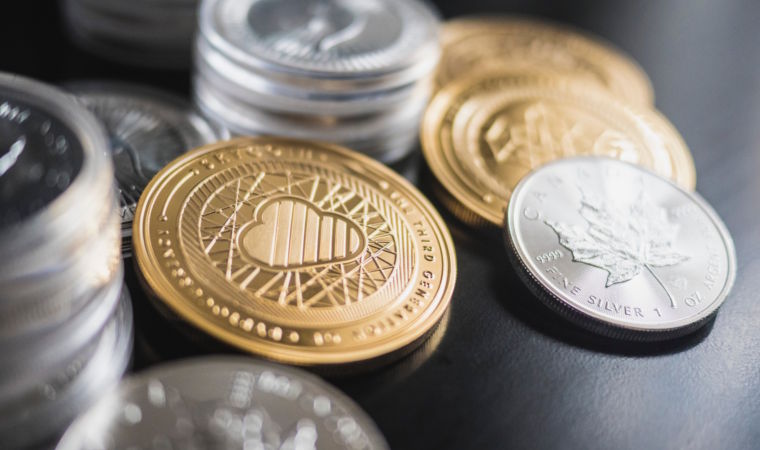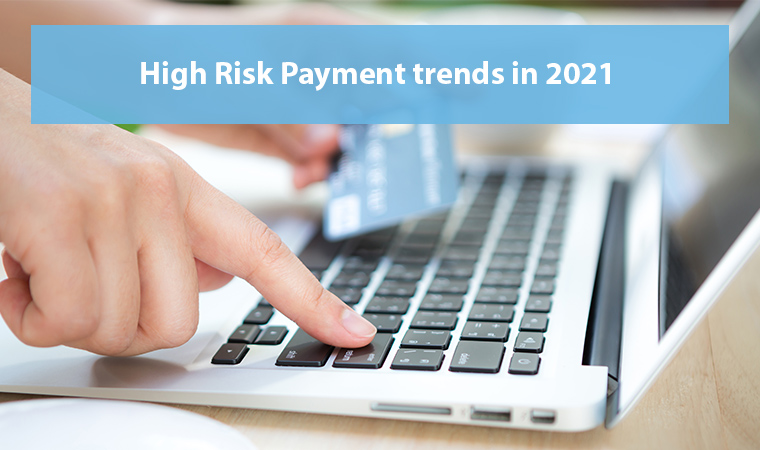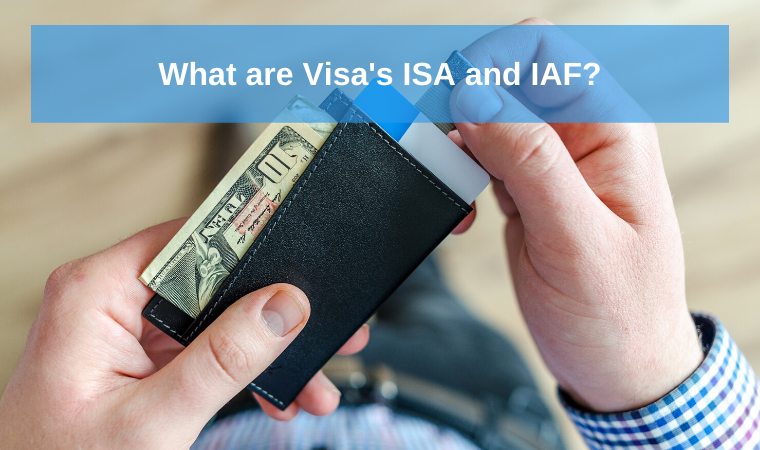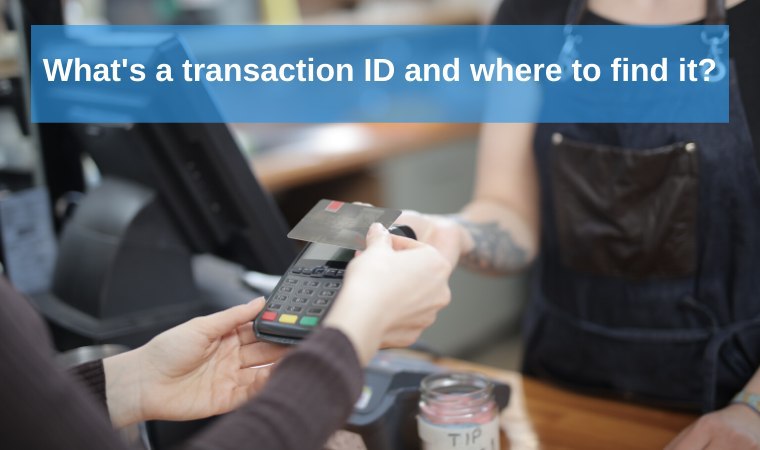How to define the high-risk industries?

Plenty of businesses from various industries surround customers daily. And some of them are from high-risk industries. Nevertheless, this fact is not always obvious. These business types are so common that customers do not pay attention to their high-risk nature.
In this article, we are going to have a closer look at the risky industries and define what makes them like that. Moreover, we’ll talk about payment processing for high-risk merchants.
Getting a closer look at high-risk industries
What is a high-risk industry?
There might be several reasons that may label business as a high-risk one. So, the businesses that deal with high-risk products or high chargeback ratio, usually fall into this category. Anyway, there might be other reasons, as well.
- A new company has no processing history,
- The business is using a subscription-based model,
- A high volume of chargebacks is typical for the industry,
- The company has a bad credit history,
- The selling involves high dollar transactions,
- The company stops working with the previous payment processor due to high chargeback ratio,
- When the target markets of the company deal with high chargeback risks (the countries outside EEA, USA, Canada, Singapore, Japan, or South Korea).
Also, we have mentioned before, the high-risk goods have a huge impact on the industry definition as well. For instance, several products make the business labeled high risk.
- E-cigarettes,
- CBD oil,
- Pharmaceuticals,
- Vapes, etc.
Why do the products themselves have such a big influence? For example, CBD oil is pretty controversial. Nowadays, it is popular for its benefits for beauty and relaxation. Nevertheless, the selling of CBD oil is open in a few countries only. Moreover, only a limited number of acquiring banks from five countries are ready to process payments from such stores.
If there are so many high-risk industries, how do you understand you are not among them? Go back to the first list we’ve shared above. If you answer “no” to those reasons, then most probably you belong to the low-risk category. Nonetheless, let us introduce you to several high-risk industries examples.
High-risk industry list
1. Forex
Forex is in this category due to a variety of risks it involves. For instance, market risks that are usually uncontrollable. Often market volatility makes it impossible to make any predictions on future profits. Liquidity risk can harm the most during the bank holidays or weekends. And one of the biggest risks – the leverage one. Due to it, Forex companies may face huge losses.
2. CBD Oil
The reason lies in the product itself. CBD oil regulations are still unclear. It’s legal in 64 countries, yet there are so many restrictions and peculiarities, that acquiring banks are unlikely to process CBD oil companies. Moreover, there is a fine line between hemp and CBD oil. This controversy also influences on the increased cautiousness from the banks’ side.
3. Gambling
Gambling includes a variety of different types. So, the most popular are online casinos, lotteries, slots, betting, and so on. Some main factors keep gambling in the high-risk league. Therefore, this business type often falls victim to money laundry suspicions. That’s because gambling merchant accounts are offshore-based.
High volume turnover also has a negative impact. Besides, chargebacks go hand in hand with gambling. That turns banks and merchant service providers away.
4. Credit card repair
Now, it’s time to share why the credit repair industry is considered high-risk. The banks mark the business owners as such, as they work with the high-risk parties. Those parties (who have credit score problems) cause a high chargeback ratio. That has negative consequences for the credit card repair companies.
5. ICO
ICO refers to new cryptocurrency investing. The business angel gets the profit once the new currency is “live.” Nevertheless, this is a high-risk industry, as it is impossible to predict the cryptocurrency success. Moreover, lots of possible scams are what scare banks and payment processors. Also, anonymity is a part of the crypto world. That’s why a threat of money laundering scares the financial institutions a lot.
6. Tech support
This industry type may seem pretty harmless. Nevertheless, this industry deals with a high chargeback ratio. This is a service and it doesn’t provide any tangible goods. Customers may act in bad faith and claim the service was unsatisfactory. Or there may be fraudsters who have never intended to pay.
7. Cryptocurrencies exchange
This category is in the high-risk area for a variety of reasons. There are no clear international legal regulations. Each country may have certain particularities that make it harder to regulate and control cryptocurrencies globally. Besides, thanks to anonymity, cryptocurrencies are the fertile ground for money laundering. Moreover, the inability to access the blockchain from the outside doesn’t make the task easier for the cyberpolice.
Also, the uncertainty of the crypto market makes it one of the high-risk industries. It’s hard to predict the fall downs or success of new cryptocurrencies. That makes the industry very unstable.
8. Pharmaceuticals
This industry is pretty controversial, as well. Every country has specific regulations on pharmaceuticals. That creates many mismatches and misunderstandings. Thus, the main high-risk reason is that pharma deals with health risks. Conterfreight or low-quality medicaments or by-country restrictions may cause plenty of problems.
9. Dating
Dating can involve lots of fraud, and the most popular kind are fake accounts. That is one of the chargeback reasons. Also, if the customer spends too much money on the dating website, one may claim s/he has never subscribed to the dating site account. Also, as some dating companies use offshore merchant accounts, banks are afraid of money laundering possibility.
10. Travel aggregators
Though it may seem like a safe business to run, travel agencies face some issues that make them high risk. Fraud is rather widespread in this industry. Cybercriminals often use stolen payment cards to make high-ticket tour purchases. The real card owners file for chargebacks then. Refunds are the common thing, as well. Travelers may simply change their mind and demand a refund. Still, they can confuse refunds and chargebacks, which makes the situation worse.
11. Law firms
This business type usually faces a high volume of chargebacks and refunds. Moreover, laws might vary drastically from country to country. Which makes the process even more complicated.
12. Call centers
The main aim of the call center is to sell goods or services. Consequently, the employees may embellish some products’ features or their quality. That, of course, causes customers’ dissatisfaction. It’s not rare they file for chargebacks because of this.
13. Agriculture/farming
Once again, what bad could be in this industry? Well, taking into account that it is very seasonal and unpredictable, banks and merchant service providers mostly say “no.” Farming may lose lots of money due to natural disasters. And often those disasters come in unexpectedly.
14. Jewelry/precious metal stores
This business type usually involves high-ticket products. Any pieces with diamonds or the ones from platinum cost thousands of dollars. That’s why banks and payment processors unwillingly work with such merchants. They try to protect themselves from possible chargebacks and refunds the customers may require.
High-risk industries payment processing
As promised, we are mentioning the main aspects of high-risk processing. As you understand, this business type requires specific solutions and approaches. Do you sell CBD oil or provide tech support? Then be really attentive while choosing a payment service provider.
There are some basic features, the payment processor should offer:
- Top-notch chargeback and fraud protection. It’s clear that the top high-risk industry problem is chargebacks. That’s why the high-risk merchant service provider must have an extensive choice of security tools. They should analyze and predict or track any suspicious activity to prevent (friendly) fraud.
- Advanced analytics. Thanks to this feature, sellers can see real-time users’ activity and build historical reports. That helps merchants learn about customers’ shopping behavior, starting from shopping IPs to usual purchase amounts or products’ types. Should something be abnormal, the merchant can prevent fraud in the early stages.
- Smart routing and a large network of acquiring banks. That ensures the transaction goes to the acquiring bank that’s most likely to process it. The payment processor connects you to the bank that is aware of your industry. As a result, you benefit from a lower decline ratio.
At Ikajo International, you can get the most from the proven solutions for the high-risk merchants. Not only Ikajo has developed its own chargeback prevention tools, but it assists with dispute management. So far, the company has up to 91% of cases resolved in the merchants’ favor. If you want to start accepting payments for your business and benefit from Ikajo’s solutions, please, fill in the form.
Conclusions
In this article, we have talked about the high-risk industries. As you can see, these industries have a lot of peculiarities and special demands. So, the high-risk label appears, when the merchant deals with the high-risk products (e.g., CBD oil) or high chargeback ratio (e.g., gambling).
Besides, you’ve received the list of the most widespread high-risk businesses. As you can see, some of them are not that obvious from the first sight.
Anyway, your main task, as a business owner, is to find a worthy payment service provider. It’s vital to ensure it has experience in high-risk merchants’ processing. That’s why we encourage you to check Ikajo International for the extensive range of solutions for high-risk businesses.









